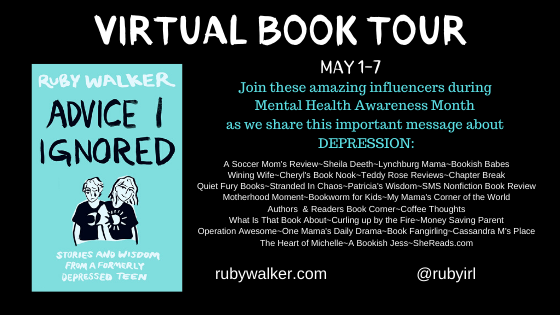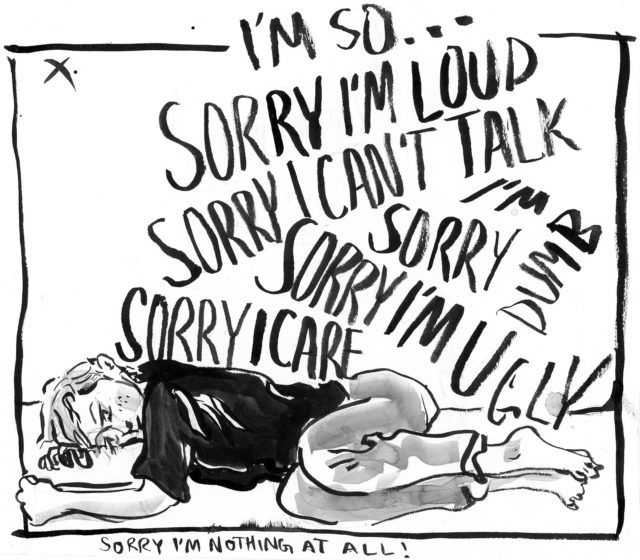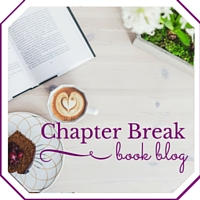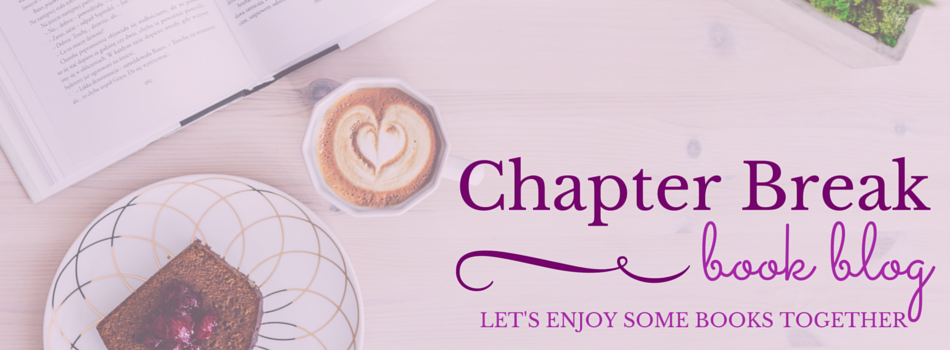
The first book about teenage depression written by a teenager!
A self-help book for people who hate help. And themselves.
Advice I Ignored: Stories and Wisdom from a Formerly Depressed Teen

Q&A With Ruby Walker
Where did you grow up /live now?
I grew up in Austin, Texas. In 6th grade I moved down south a little to Hays county. It’s really beautiful when the wildflowers come out.
As a child, what did you want to be when you grew up?
I wanted to be an actor, but I wasn’t very good at it. I did theater growing up. I was always auditioning and then getting disappointed when I couldn’t get the roles. After I dropped out, I decided to focus on art and writing instead, because you don’t need anyone’s permission to draw or write.
What is your educational background?
I had to explain my school situation so often while I was in community college, I think it’s a little boring at this point, haha.
Basically: I dropped out of high school when I was about to turn 15, at the beginning of the spring semester. I was supposed to be homeschooled, but for the next 6 months I really just spent a lot of time alone. Then the next fall, I started taking classes at Austin Community College under ACC’s Early College High School program. Legally I was homeschooled, and I was allowed to take college classes full-time for credit. Sometimes I’d just take 2 or 3 classes though, especially when I started working on the book. Now I’m a freshman at Trinity University in San Antonio.
Do you have pets?
Yeah! My parents have three dogs. I love them, but I’m also allergic to dogs, so it’s nice to get a break from that when I live in the dorms.
When did you first realize you wanted to be a writer? Or what first inspired you to write?
I was always more interested in drawing than writing, really. But when I started my process of recovery, writing became really important to me. I think things get a lot easier to deal with once they’re down on paper. Keeping a journal helped me learn how to turn my experiences into something beautiful, or at least easier to process.
Where/When do you best like to write?
It doesn’t really matter where I am as long as I’m able to limit distractions. Sometimes I write better when I’m outdoors in nature. I just have to make sure I’m not going to be tempted into scrolling through Twitter instead.
Do you have any interesting writing habits or superstitions?
I wrote the whole first draft of Advice I Ignored in composition books and legal pads, with a pen. My favorite kind of pen is a blue Pilot G2, .7mm. I swear by writing in pen because it limits your ability to edit as you write. For a first draft, I think the best thing to do is to just get it all out, and then think about backspacing later.
When you are struggling to write, what are some ways that help you find your creative muse again?
Sometimes I just have to be tough with myself: sit down, write something, even if it isn’t perfect. Other times, I’ve really been making an effort to write but the core concept just hasn’t come into my head yet. For times like that, I just try to go about my life in a way that makes space for thinking. Going on a walk around the neighborhood, eating a quiet meal, taking a bath. Eventually I know I’ll think of something to say.
What do you think makes a good story?
Of course, there’s spacing, dialog, plot, tension, and all that. But something I always look for in a good story is truthfulness. Not “is this literally true in real life,” but whether it seems like the author is representing real, deep human emotions and experiences. Sometimes I read a book and it gives me the impression that the author is writing based on tropes from other media they’ve consumed. It’s imitative and it feels disingenuous. My absolute favorite stories are the ones that seem to come directly from life on an emotional level, even if they’re sci-fi stories full of aliens and whatnot.
Is there an overall message or theme in your book that you want readers to grasp?
Change is possible. From moment to moment, the little choices we make about how to live our lives can add up to a total overhaul. Nothing stays the same forever.
What was your greatest challenge in writing this book?
Just doing the work! I think sometimes I procrastinated working on the book because writing something autobiographical about the worst part of my life thus-far involves an uncomfortable amount of vulnerability. But also, sometimes I just wanted to go swimming with my friends or watch the X-files instead.
On a Friday night, what are you most likely to be doing?
That depends! It’s changed a bit since I went off to university. At home, a typical Friday night would involve eating ice cream and watching tiktoks with my friend Al. At school, it’s different every week. I’ve done everything from Shabbat services at the local synagogue to frat parties to sitting alone in my room in the dark.
What do you like to do when you are not writing?
I spend way too much time on the internet, but I’m actively trying to cut back on that. I’m trying to read more books. I always tell my friends, “Just because I wrote a book doesn’t mean you can assume I know how to read.” I also like running, movies, gardening, drawing, dancing, and getting involved with local politics. I was on the school Ultimate Frisbee team for a few months, but I sprained my ankle at our first tournament and ended up quitting (oops).
Who are some of your favorite authors?
Gloria Anzaldúa, Emma Donoghue, Virginia Woolf, Audre Lorde, Emily Bronte, Malinda Lo, Madeline Miller, Nora Sakavic, Jandy Nelson, Diana Wynne Jones, Emily M. Danforth, Abraham Verghese, Brandon Sanderson, and James Baldwin.
Some people might take offense to this, but in general I find a lot of the straight-white-man literary “classics” unreadable. Catcher in the Rye was boring, Lolita was garbage, and I put down 1984 when it became an extended sex fantasy. But I’m reading Dune and I really like it so far, so I don’t think I’m totally prejudiced.
Do you have a bucket list? What are some of the things on it?
I think I should probably learn how to drive eventually.
What person has helped you the most in your career?
My mom. She helped me edit the book. She’s the best person I know.
What’s the best writing advice you have ever received?
“If you’re bored writing it, people are probably gonna be bored reading it.”
What was your favorite book as a child?
I was absolutely obsessed with Percy Jackson and the Olympians. I used to sit up in a tree and listen to the audiobook on my little mp3 player for hours and hours. I must’ve read the whole series at least 9 times over. I had the prophecies memorized!
Does writing energize or exhaust you?
I think it’s a lot like physical exercise, in that it does make me tired at the moment, but the more I practice it, the more energy I have later in other areas of my life. Getting my thoughts out of my head frees up room for other stuff.
What is your writing Kryptonite?
Having a Twitter account. I deleted my Twitter and I was perfectly happy without one for almost 3 years, but then I had to make one again for the purposes of marketing my book. And… ugh. It’s so distracting. I can’t help myself. Y’know the phrase, “It’s easier to keep a tiger in a cage than on a leash”? When it comes to social media, my tiger is on a very flimsy leash.
Have you ever gotten reader’s block?
Uh, yeah… Between finishing my book, schoolwork, and the temptation of just reading Star Trek fanfiction instead… I can’t remember the last time I actually finished reading a book. It’s a problem I’m working on!
Did you ever consider writing under a pseudonym?
Yeah. In Advice I Ignored, I changed everyone’s name but my own. The book covers a lot of really personal topics, so I was initially a little trepidatious about publishing it under my real name.
If you could tell your younger writing self anything, what would it be?
Stop worrying all the time about whether or not you’re good at writing. Just write!
What book did you dislike at first but grew into?
Jane Eyre! It’s one of my all-time favorite books right now. In general, it’s hard for me to make myself care about heterosexual romance (sorry), especially if it’s all in old-timey 1840’s language with 8,000 semicolons per page, but I just fell in love with the character of Jane. She’s so resilient.
What is a book that inspired you?
Borderlands/La Frontera by Gloria Anzaldúa was a really formative read for me. Not only did she have all these really bold and interesting ideas about Chicana feminism, she wrote in a way I’d never seen before. Cutting and precise, but also florid and beautiful. She mixed quotes with folk song lyrics with poetry, interspersed throughout her essays, and all of this flowing between English and Spanish as naturally as she pleased. I love that book.
What does literary success look like to you?
I mean, hopefully I’d like to eventually make back the money I’ve spent on marketing and stuff. Other than that, my hope is that my book gets into the hands of someone who needs it, and that it helps. I have modest dreams.
But I also really, really, really want to get on Fresh Air with Terry Gross!
Do you view writing as a kind of spiritual practice?
Not always, but sometimes it’s very emotionally important to me. By the time I started writing Advice I Ignored, I had already recovered from the worst of the depression, but writing it helped me work through a lot of other things. There’s something really wonderful about being able to hold the things you believe in in your hands.
What is something you left out of the book, and why?
I didn’t have the space to get into the role alcohol played in my teen years, but it’s still important to me. Or maybe I just didn’t want to talk about it because it’s illegal… I’m not sure if writing a book counts as a confession. My mind was so unpleasant to me, I wanted to be intoxicated, just to make it quiet down. It’s not like I ever had the means to get drunk every day or anything, but when I was 17, I still decided to quit drinking, full stop. I got support from internet forums and it ended up being really, really good for me. I had to learn how to deal with my emotions head-on without running away. I also learned how to say “no” to things that weren’t good for me. It made me feel really strong.
What was your hardest scene to write?
The whole chapter on trauma was hard for me to write. At the time, I still hadn’t even told my mom. I hadn’t told any of my best friends. Even in my head, I wouldn’t use the words “sexual abuse” to describe what happened. Writing it was really cathartic in some ways, but in others it wreaked havoc on me. It re-opened things. I remember waking up crying from some really bad nightmares that week. I thought about it every second of the day.
I think I go through cycles though, of thinking about it and not thinking about it. Every time I go into another “crisis” period, I learn things, and it gets a little easier. Writing that chapter forced me to acknowledge my pain and stop minimizing it so much, and even thought that was hard, it was ultimately very useful.
If you had to write a few more chapters of Advice I Ignored, what would their titles be?
“Just Get Some Sleep,” “Hugs Not Drugs,” and “Practice Imperfection!”
What makes you smile?
Talking to cool old ladies who don’t give a crap what anyone thinks. Having absurdly specific fanatic discussions with my friends. Sitting on some soft grass!
Advice I Ignored: Stories and Wisdom from a Formerly Depressed Teen by Ruby Walker
- Paperback: 169 pages
- Publisher: Ruby Walker (September 5, 2019)
- Language: English
- ISBN-10: 1733478973
- ISBN-13: 978-1733478977
- Product Dimensions: 6 x 0.4 x 9 inches
When Ruby Walker was 15 going on 16, she went from a numb, silent, miserable high school dropout to a joyous loudmouth in one year flat. Advice I Ignored answers the question everyone’s been asking her since: What happened?
Full of stories, honest advice, fierce hope, and over 100 hand-inked illustrations, Advice I Ignored is an important resource for teens suffering from depression (which has reached epidemic proportions), parents who have one, and educators who want to help. Applicable for adults suffering too!
“If you are a teen struggling with depression and anxiety, an adult working with teens, or an adult who is yet to shake off those traumatic teenage situations, Advice I Ignored is for you.” – Jo-Ann Duff, duffythewriterblog.com
About the Author
Ruby Walker is an 18-year-old college student, artist and writer. Ruby grew up in Austin, moved down to Buda (TX), dropped out of high school, earned herself full tuition to a private university, and is currently studying art at Trinity University in San Antonio. Advice I Ignored: Stories and Wisdom from a Formerly Depressed Teen is the only book on teenage mental health actually written by a teenager.
Twitter @rubyirl
Author website: https://rubywalker.com/
Note: Some posts may contain affiliate links. Should you choose to purchase a product, we will receive a small commission for the sale at no additional cost to you. Chapter Break is a participant in the Amazon Services LLC Associates Program, an affiliate advertising program designed to provide a means for sites to earn advertising fees by advertising and linking to Amazon.com.





Hey, thanks a lot! What is the main cause of depression among the youth?